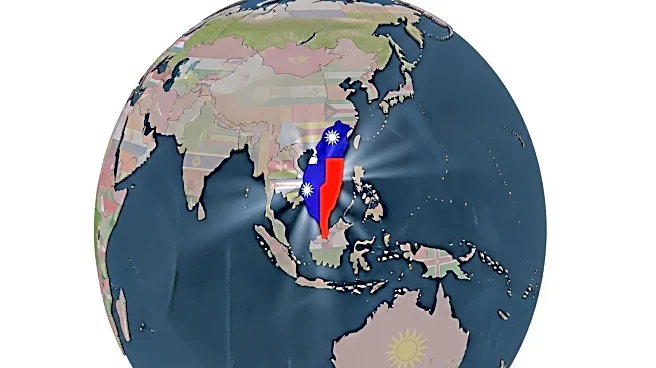What's Happening?
China has issued a white paper to assert its sovereignty over Taiwan, coinciding with the conclusion of the United Nations General Assembly's annual gathering in New York. The document, released by China's Foreign Ministry, is part of an ongoing dispute over historical agreements from World War II, which China claims support its territorial claims over Taiwan. The American Institute in Taiwan (AIT), representing U.S. interests in Taipei, has rejected China's interpretation, stating that the postwar status of Taiwan remains undetermined. The U.S. supports Taiwan's autonomy and is its main arms supplier, while China views Taiwan as a critical issue in its relations with the U.S. and has not ruled out using force for unification.
Why It's Important?
The U.S. stance on Taiwan is significant as it underscores the geopolitical tensions in the region. The U.S. backing of Taiwan's autonomy challenges China's claims and could influence international relations and security dynamics in the Asia-Pacific. The situation affects global trade routes and regional stability, with potential implications for U.S. foreign policy and military strategy. Taiwan's position as a major technology hub also means that any conflict could disrupt global supply chains, particularly in the semiconductor industry.
What's Next?
China is expected to continue its pressure on Taiwan, including military maneuvers and diplomatic efforts to isolate the island internationally. The U.S. may respond with increased military support for Taiwan and diplomatic efforts to rally international support for its position. The situation remains volatile, with potential for escalation if diplomatic solutions are not found.











